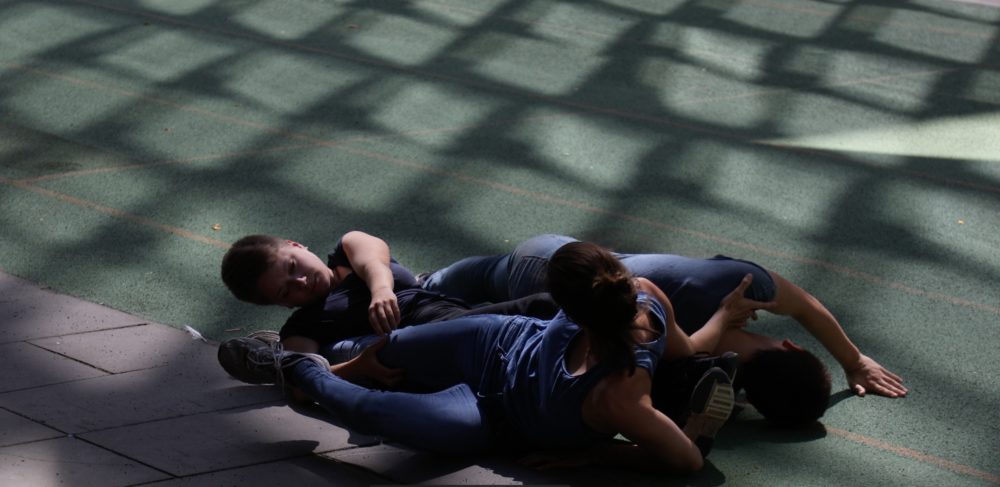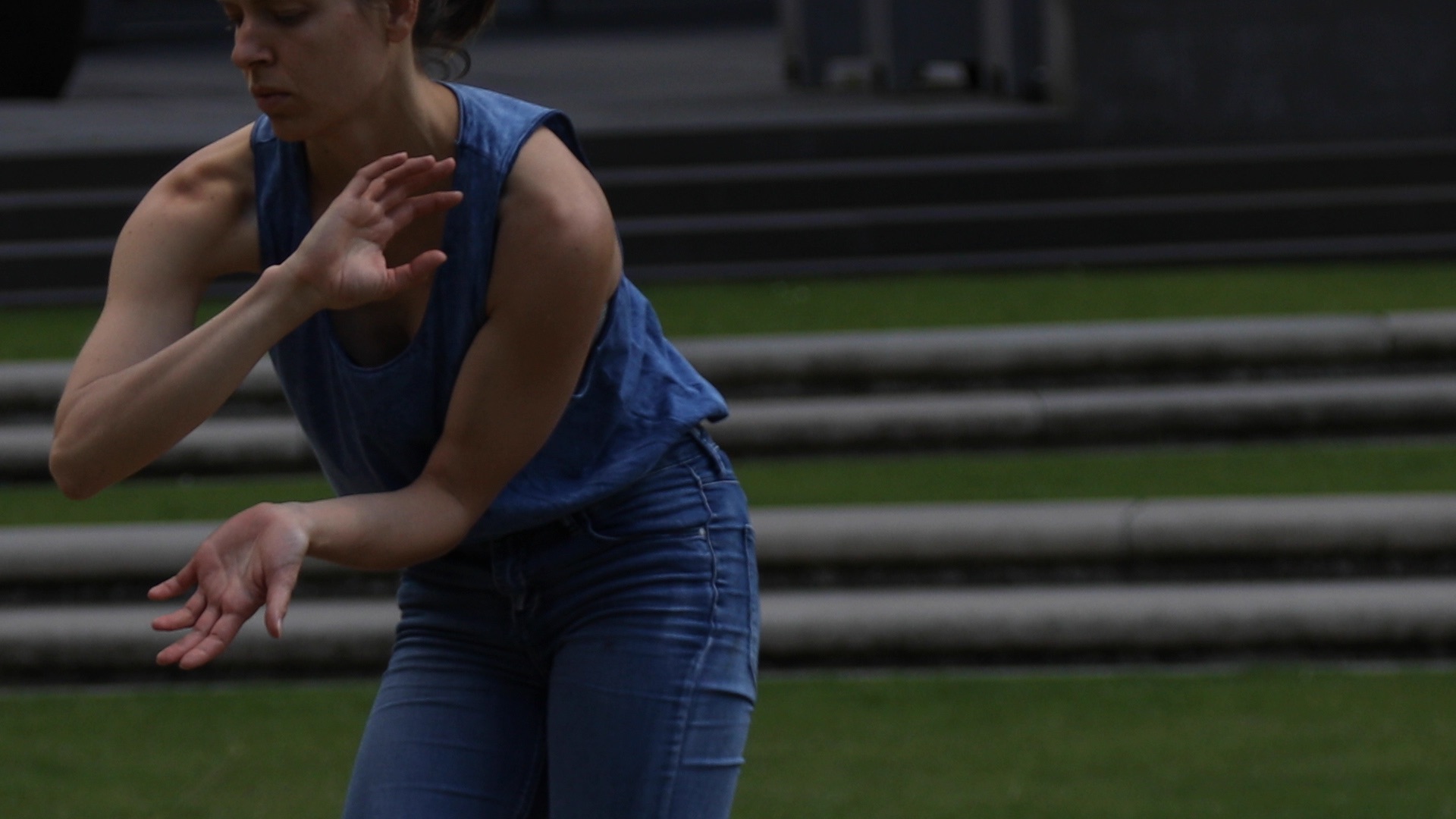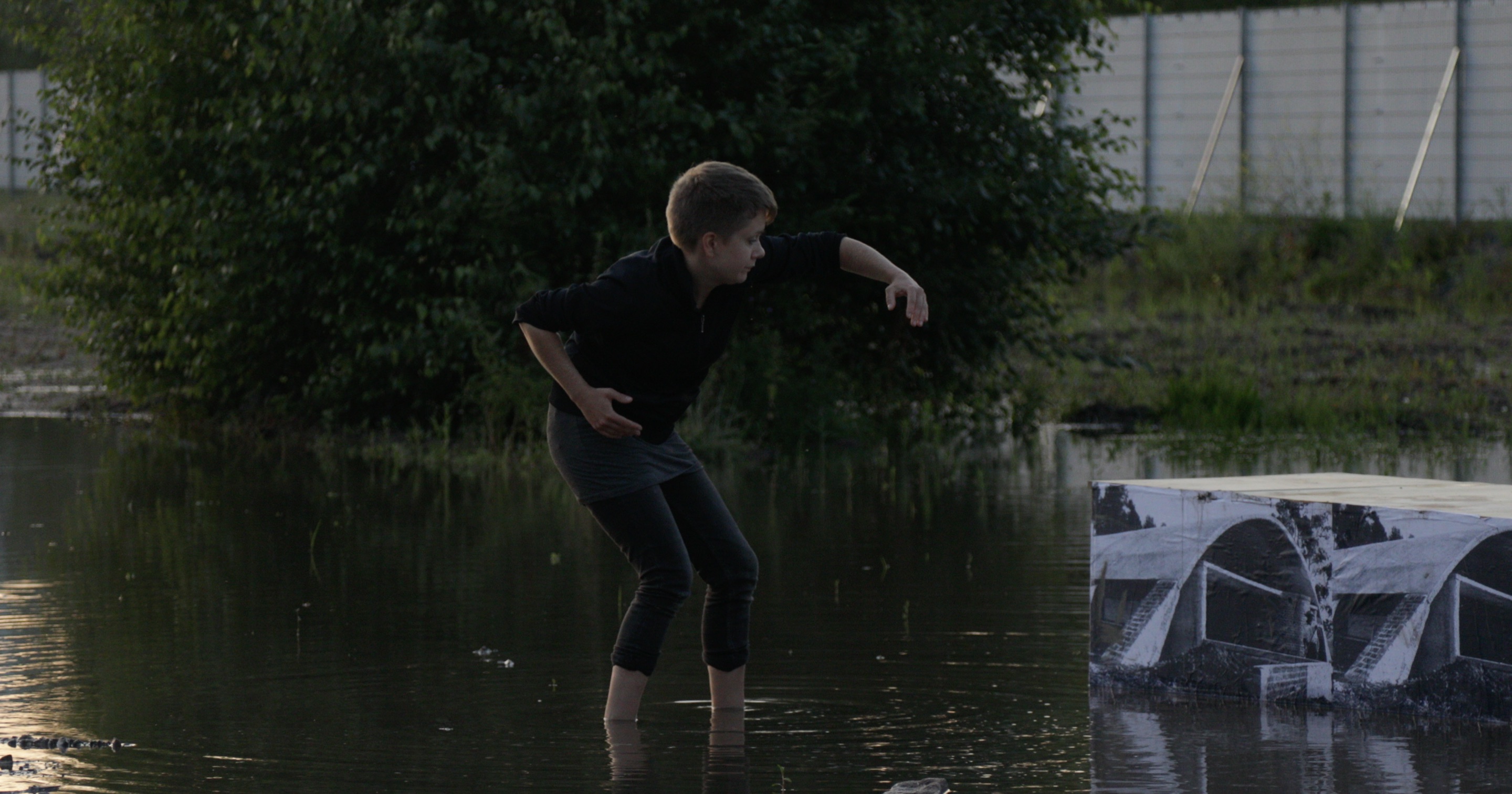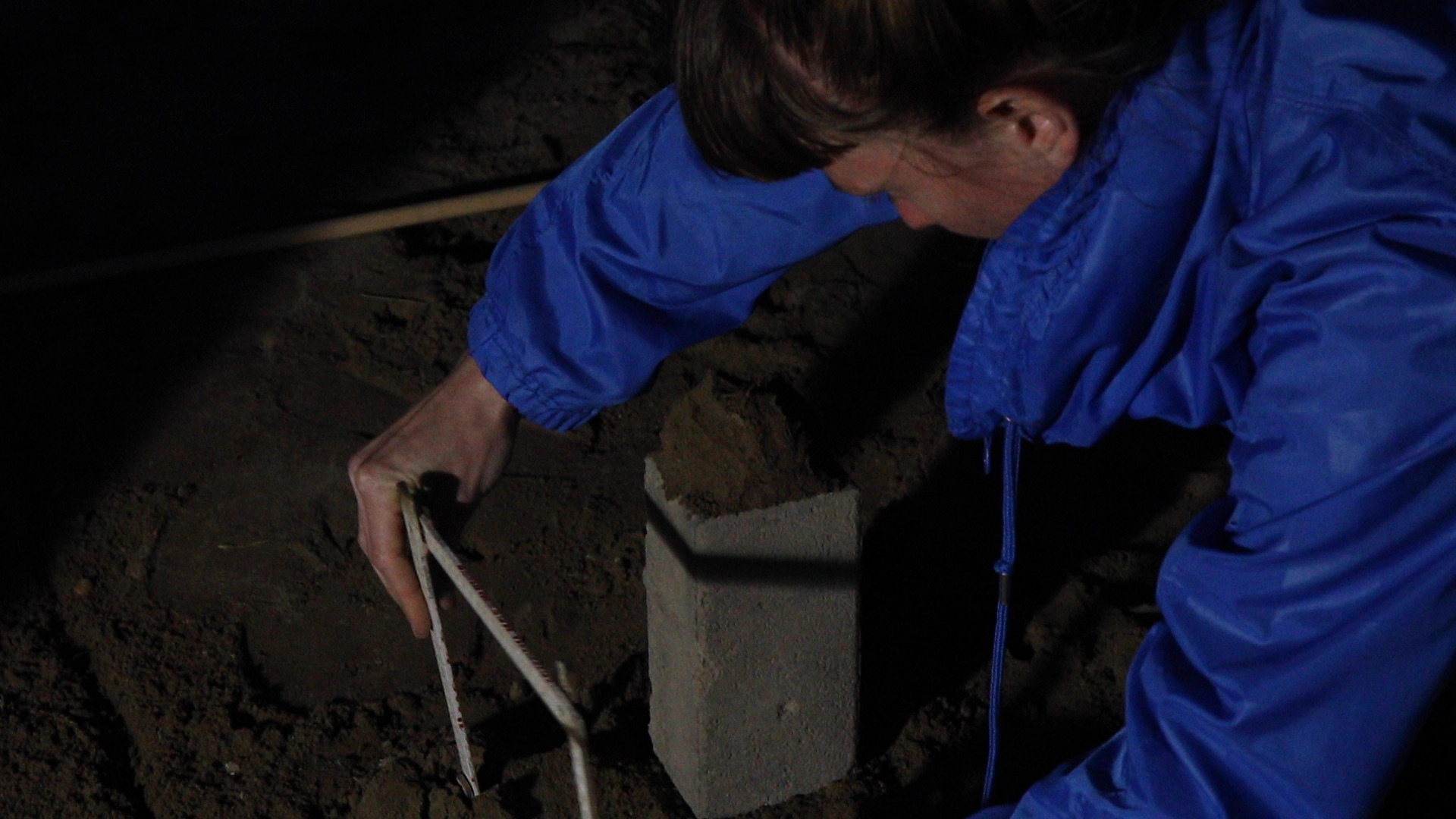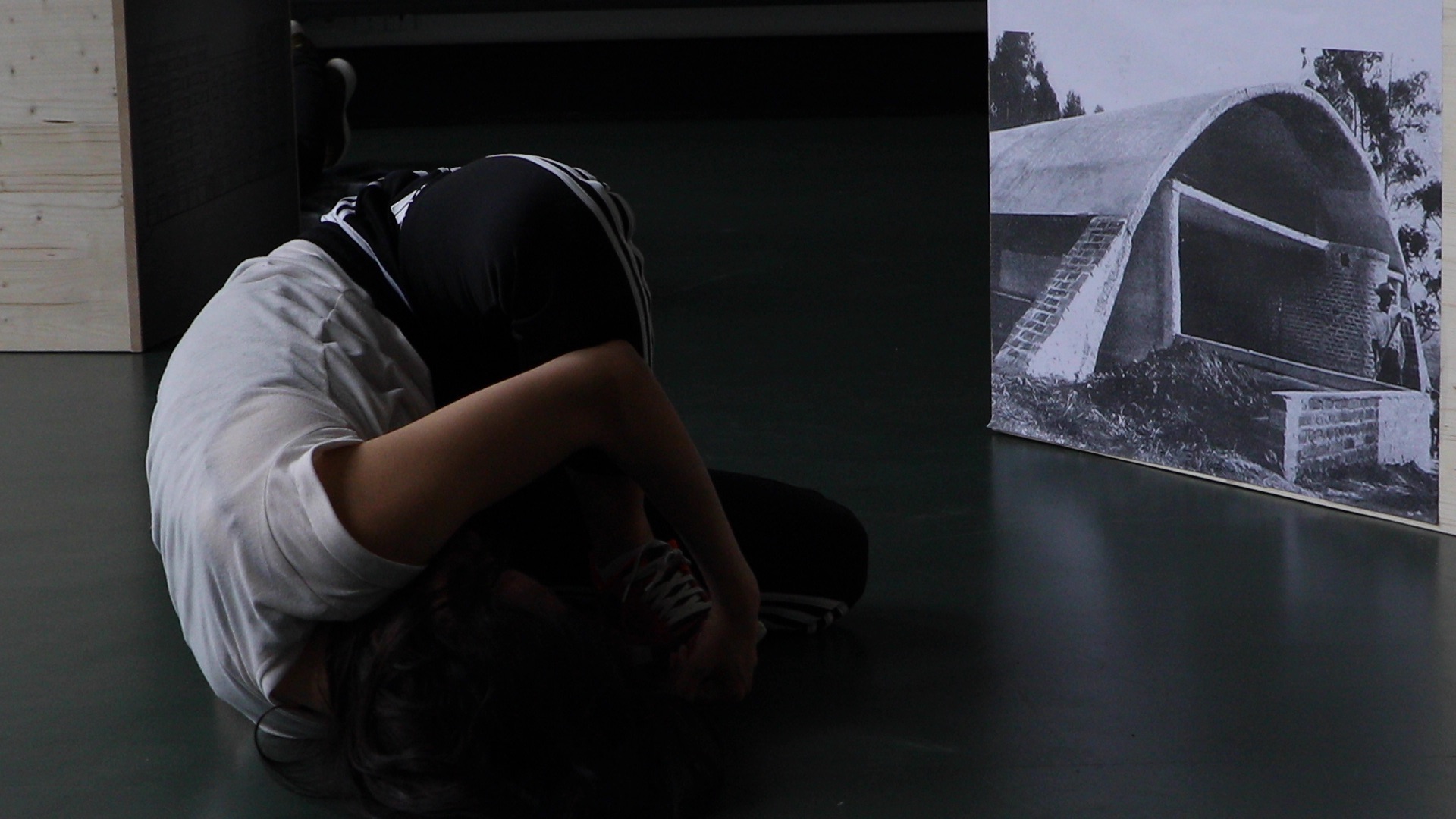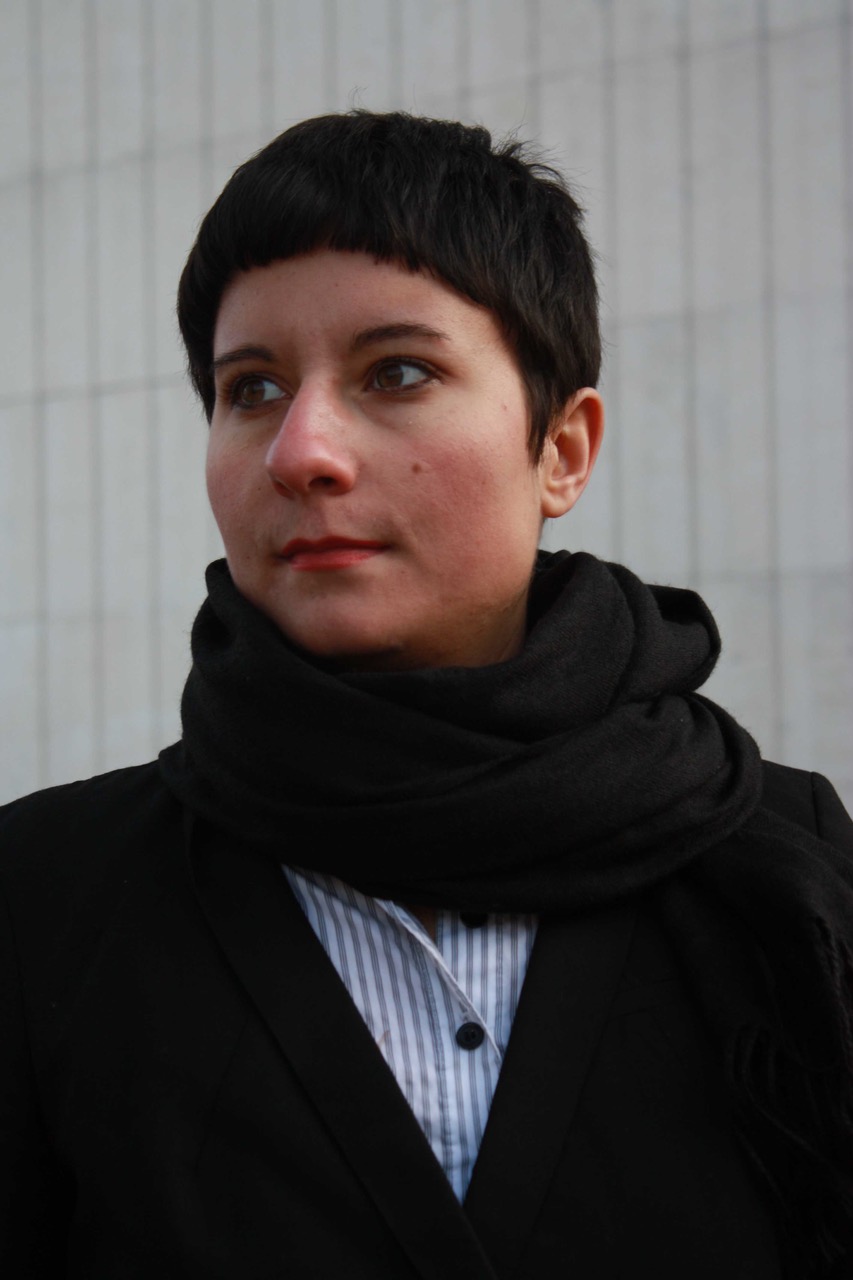Curriculum
*1984 in Wien, Österreich, lebt und arbeitet in Hamburg.
Sie studierte Bildende Kunst, Kulturwissenschaften und Ethnologie in Wien, Berlin, New York, Stockholm und Hamburg. Bruckner interessiert sich für die Arbeitsbedingungen, die sich als Reaktion auf die Technologien des kommunikativen Kapitalismus herausgebildet haben. Ihre Arbeiten wurden international gezeigt, zuletzt in den KW, Institute for Contemporary Art, Berlin; im Migros Musem für Gegenwartskunst, Zürich; in der Villa Croce, Museum für Zeitgenössische Kunst, Genua; Das Kunsthaus in Hamburg; der Kunstverein Harburger Bahnhof, Galleri Box, Cabaret Voltaire an der Manifesta 11, Zürich, dOCUMENTA (13). Bruckner hat an verschiedenen Universitäten und Institutionen gelehrt, unter anderem an der Bauhaus-Universität Weimar, der Hochschule für Gestaltung und Kunst Luzern, der Zürcher Hochschule der Künste und dem BAC Center Contemporain in Genf. Ihre Arbeit wurde mit zahlreichen Stipendien ausgezeichnet, zuletzt erhielt sie das Hamburger Stipendium für Bildende Kunst (2016), erhielt 2015 ein Stipendium für das Atelierprogramm am Banff Center for Visual Arts in Kanada und ist derzeit Stipendiatin an der Sommerakademie Paul Klee (2017-19). Bruckner lehrt an der Zürcher Hochschule der Künste.
*1984 in Vienna, Austria, lives and works in Hamburg.
She has studied Fine Arts, Cultural Studies and Social Anthropology in Vienna, Berlin, New York, Stockholm and Hamburg. Bruckner is interested in the conditions of labour that have been ermerging in response to the technologies of communicative capitalism. Her work was shown internationally, most recently, at KW, Institute for Contemporary Art, Berlin; the Migros Musem für Gegenwartskunst, Zürich; the Villa Croce, Museum for Contemporary Art, Genoa; the Kunsthaus in Hamburg; the Kunstverein Harburger Bahnhof, Galleri Box, Cabaret Voltaire at Manifesta 11, Zurich, dOCUMENTA (13), and she is now preparing a solo exhibition at Reflektor, PROGR, Bern. Bruckner has lectured at various universities and institutions including the Bauhaus University of Weimar, the Lucerne School of Art and Design, Zurich University of the Arts and the BAC Center Contemporain in Geneva. Her work was arwarded by numerous grants, most recently, she received the Hamburg Stipendium for Fine Arts (2016), was awarded a scholarship holder for the studio program at the Banff Center for Visual Arts in Canada in 2015, and she is currently a fellow at the Sommerakademie Paul Klee (2017-19). Bruckner teaches at the Zurich University of the Arts
Education
2014
Hochschule für Bildende Künste Hamburg / Academy of Fine Arts Hamburg
Fine Arts, Time-based Media; with Michaela Melian and Jesko Fezer
Degree: Master in Fine Arts (with distinction)
2012
Royal Institute of Arts, Stockholm, Advanced Program for Professional Artistic Development, Artistic Research
2010
Academy of Fine Arts, Vienna, Cultural and Critical Studies, Diplom
University of Fine Arts, Berlin, research semester to compelete the final thesis, Certificate
2009
University of Vienna, Cultural and Social Anthropology, Visual Cultures, Gender Studies
Degree: Master of philosophy (with distinction)
2008
University of Utrecht, Cultural and Social Anthropology (Erasmus program, University of Vienna, 12 month
2007
University of Vienna, International Development
Statement
Johanna Bruckner interessiert sich für die Bedingungen der aufgelösten Arbeit, die sich als Reaktion auf die Technologien des kommunikativen Kapitalismus herausgebildet haben; oft arbeitet sie mit sozialen und politischen Bezügen, die sich innerhalb der Brüche und Kämpfe unserer Realitäten herausbilden. TänzerInnen und PerformerInnen sind in ihren Arbeiten, Filmen und Videoinstallationen von zentraler Bedeutung, um das Verhältnis zwischen den von Algorithmen geprägten Subjektivitäten zu hinterfragen, die versuchen, (historisches) Wissen und kulturell-ökonomische Realitäten neu zu artikulieren.
Das "Internet der Dinge" ist eine Einladung an den menschlichen Intellekt, entweder anzunehmen und teilzunehmen oder abzulehnen. Wie können Verweigerungs- und Widerstandspraktiken organisiert werden, um eine Gegenhegemonie zur totalen Absorption des Lebens in die immer schneller werdende Maschine der kapitalistischen Abstraktion anzubieten? Wie kann die Kunst dazu beitragen, eine Form intellektuellen Handelns zu erfinden, die in der Lage ist, ein soziales Wissen zu bejahen, das die Gestaltung neuer Beziehungen innerhalb einer Gesellschaft abstrakter Singularitäten beeinflusst?
Ihre Arbeit ist ein Versuch, die Paradoxien und neuen Möglichkeiten des sozialen Zusammenhalts bei der Auflösung der menschlichen Handlungsmacht von heute in Frage zu stellen. Welche Formen des Widerstandes entstehen im Zustand der Auflösung der Arbeit? Welche kinetischen Praxisformen könnten diese neuen Organisationsformen zusammenhalten? Wenn wir die Performance als agonistisch bewegend wahrnehmen, wie in Chantal Mouffes "agonistischem Denken", denken wir dann an die Arbeit als "agonistische Performance"?
Johanna Bruckner is interested in the conditions of dissolved labour that have been ermerging in response to the technologies of communicative capitalism; often working with social and political references that emerge within the ruptures and struggles of our realities. Dancers and performers are significant in her work, films and video installations; in order to question the relation between subjectivities that are shaped by algorithms, seeking to rearticulate (historic) knowledge and cultural-economic realities.
“internet of things” is an invitation to the human intellect either to accept and participate or to refuse. How can practices of refusal and resistance be organised in order to offer a counter-hegemony to the total absorption of life into the ever-accelerating machine of capitalist abstraction? How can art contribute to invent a form of intellectual agency capable of affirming a social knowledge that affects the configuration of new relationships within a society of abstract singularities?
Her work is an attempt to question the paradoxes and new potentialities of social cohesion in the dissolution of human agency today. Which forms of resistance emerge within the condition of the dissolution of labor? Which kinetic forms of practice could hold these new types of organisations together? If we perceive performance as agonistic moving, as per Chantal Mouffe’s “agonistic thinking”, do we think of labor as “agonistic performance”?
